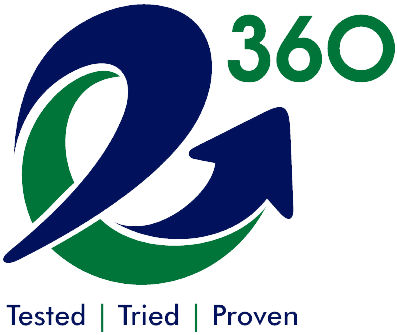ELA approach
- Home
- What We Do
- ELA approach

// What We Offer
How do students benefit from English language skills?
Along with math, English is one of the foundational subjects that students must master to make progress in other subjects areas, especially as they advance in grade level. Language proficiency is necessary as it allows students to communicate across all disciplines. When students lack language skills, they experience difficulties with both in-class instruction and independent learning. In turn, this can limit progress in other subject areas. To be successful learners, students must be proficient language users.
At e360, our tutors work closely with each student to assess his/her strengths and weaknesses, and consult with both parents and teachers to gain further insight. This allows us to develop an individualized progress plan, with clearly set goals, to help each student improve his/her language proficiency. While we tailor instruction to each student’s individual needs, we believe certain elements are essential to strong language skills. As such, we consistently emphasize the following areas of development for all students:
- Conventions of English usage and grammar
- Reading fluency and comprehension
- Close-reading skills
- Knowledge of diverse language usage
- Academic language

// about service
We Provide Best
We Provide Best
Web Development
01.
Java Development
We’re committed to building sustainable and high-quality Java solutions.
02.
PHP Development
We’re committed to building sustainable and high-quality PHP solutions.
03.
C++ Development
We’re committed to building sustainable and high-quality C++ solutions.
04.
.NET Development
We’re committed to building sustainable and high-quality Qt solutions.
// Our Holistic Approach
Holistic Approach to Language Proficiency
Integrating language knowledge, reading, and writing
All areas of language acquisition and proficiency are interconnected. To focus on one area in isolation presents an incomplete picture and often leaves students unsure of how to apply what they have learned. At e360, we support students’ English language proficiency by integrating instruction in language conventions and usage, reading, and writing. In this approach, each area of language acquisition supports the others. By learning these areas of language as parts of a whole, students reinforce their knowledge of language by seeing its application in written texts and applying it in their own writing
Writing for the World — Developing writing for success in school and beyond
While the use of multimedia in schools has grown, student work still has written language as its core. However, the form of writing has become increasingly varied, including presentations, websites, and creative texts, alongside traditional essays and lab reports. In response to this development, we help students understand how to adapt their language knowledge to various forms, purposes, and audiences. This prepares students to succeed in college and beyond, where writing is increasingly varied, but always essential for meaningful communication.
Language for Learning — Language as a foundation for further learning
Whether written or spoken, formal or informal, language is the medium through which the vast amount of school learning takes place. In this sense, the need for language proficiency goes well beyond the English classroom, extending to all academic subjects. In order to succeed, students need to effectively apply their language skills, including reading and writing, across various disciplines. This is especially true as students advance in grade level: subject material utilizes more academic language while students are expected to work more independently. At e360, we aim not only to provide students with a solid foundation in language skills, but to develop their ability to apply these skills across all academic subjects.
Academic Language — Language as a pathway to critical thinking
At e360, we aim to support students’ growth through a focus on academic language, not just in English, but in all areas of instruction. Academic language refers to both the general academic and domain-specific vocabulary and the syntactic structures found within academic and professional discourse. That these words and phrases are so widespread is no coincidence; they help convey complex ideas critically and precisely. Our belief is that through increased
familiarity with academic language, students can better understand and evaluate subject matter while improving their own expression in writing and speaking. As such, we provide students with lexically challenging texts to expand their knowledge and use of academic language and critical thinking skills.
// Why Us
Why are we in the business

// Functional, Usability & Performance
Elementary
- Language learners
- Must learn the fundamentals of language
- Writing complete sentences clearly
- Reading for comprehension, but then close-reading for analysis
- Essential for success in other subjects and independent learning
// Functional, Usability & Performance
Middle
- Language learners
- Must learn the fundamentals of language
- Writing complete sentences clearly
- Reading for comprehension, but then close-reading for analysis
- Essential for success in other subjects and independent learning


// Functional, Usability & Performance
High School
- Should be proficient language users
- Should be able to analyze and make effective decisions on language usage based on subject, task, and audience
- Write proficiently with well-reasoned claims and effectively integrated evidence, making use of academic language and organization
- Reading critically across all disciplines, understanding how language functions in different contexts
- Be prepared for the rigorous reading and writing demands of college, and be able to demonstrate knowledge of language usage through assessment
// Why Us
Engagement that is Smart,
Engagement that is Smart,
Blended, and Assessed

Smart Engagement
At e360, smart engagement means making informed decisions to best aid students. With each student, we identify proficiency levels, strengths, and weaknesses. This allows us to use a targeted approach to engage students at their level of proficiency and establish an individual progress plan. By consistently working with the same tutors, students reinforce their previous knowledge while adding new concepts and skills and making progress towards clearly identified goals.

Blended Engagement
As an educational company that believe in a modern approach, we offer a blended engagement of in-person and remote tutoring to best support our students.
Traditional in-person instruction allows tutors to better explain difficult concepts interactively and monitor student progress directly. As a complement to in-person instruction, remote instruction allows students to use technology and work more independently, with feedback, support, and correction as needed. Not only does this increase the frequency with which students can receive tutoring, but it also helps families access tutoring more easily.

Assessment
As a data-driven company, we believe in demonstrable results and adaptive practices driven by consistent and comprehensive assessment. Additionally, we believe students and their families deserve to be informed about student progress through measured outcomes. Initial assessment informs student placement and individual progress plan, while continuous assessment helps measure how well students understand and retain knowledge. Finally, assessment helps ensure that our practices and our tutors’ instruction result in student progress, constantly adapting to better meet student needs.









